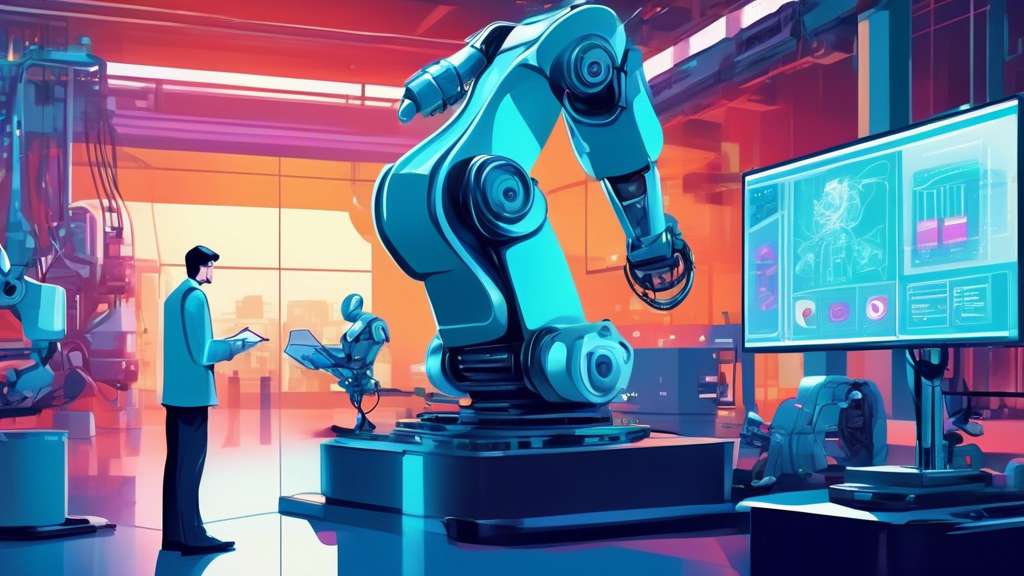How AI Boosts Efficiency: My First Real Brush with AI in the World of Manufacturing
Last summer, I walked into a factory that had recently integrated artificial intelligence into its production line. If you’d told me a decade ago that I’d see robots collaborating with humans, seamlessly optimizing tasks, I might have laughed it off as sci-fi. Yet, here I was, watching a scene that seemed straight out of a futuristic movie.
How Is AI Changing the Manufacturing Game?
Have you ever wondered how items are produced with such consistency and precision these days? Well, one big reason is AI. From the auto industry to electronics, AI technology is revolutionizing the way items are manufactured, leading to increased efficiency and safety while reducing costs.
How AI Boosts Efficiency: AI in Automation and Control Systems
One of the most fundamental roles of AI in manufacturing is in automation. Robots, controlled by intelligent algorithms, handle tasks from assembly to packing, which are often monotonous or too hazardous for humans. But, isn’t it fascinating how these robots can do these tasks without fatigue and with precision around the clock?
Read about: Advancements in AI Tools for Patient Monitoring
The AI systems learn from repeated tasks, improving their efficiency over time through machine learning models. This not only speeds up the production process but also minimizes human error, resulting in a higher quality product. Have you noticed how your newest gadgets have increasingly sleek finishes and robust builds? Thank AI for that meticulous craftsmanship!
How AI Boosts Efficiency: The Role of AI in Predictive Maintenance
Another area where AI is making a significant impact is in predictive maintenance. This AI capability can forecast potential equipment malfunctions before they occur. Sensors collect data from machinery which AI analyzes to predict equipment failures. This means maintenance can be performed as needed rather than on a set schedule, minimizing downtime and extending the lifespan of machinery. But think about it: isn’t it amazing that we can prevent a machine from breaking down before it even shows any signs of failure? This not only saves money but also keeps the production line running smoothly.
How AI Boosts Efficiency for Quality Control
AI-driven quality control systems are transforming how manufacturers maintain product excellence. These systems use cameras and sensors to inspect products. The AI can spot defects that are invisible to the human eye, ensuring that only products meeting the highest quality standards reach the market. Ever wonder why the number of product recalls has decreased significantly in recent years? Well, you have AI to thank for the improved product reliability.
When AI Gets It Wrong: A Lighter Look at AI Missteps
Despite its vast potential, AI in manufacturing isn’t always perfect. I recall visiting a plant where an AI-controlled painting bot was supposed to paint car doors but ended up sporadically painting the handles instead. It turned out that a minor error in the algorithm’s coding was to blame. Honestly, it was a mix-up that frustrated but also amused us on the factory floor. While AI does enhance efficiency, it reminds us of its learning curve and need for occasional human oversight.
How AI Boosts Efficiency: Concluding Thoughts
AI’s role in manufacturing is growing at an unprecedented rate, driving efficiency, improving safety, and enhancing product quality.
As we look towards a future where AI becomes even more integrated into our manufacturing processes, it’s thrilling to think about the innovations on the horizon. Are we heading towards a fully automated production world? Only time will tell, but one thing is for certain: AI is reshaping manufacturing in ways we once only dreamed of.
